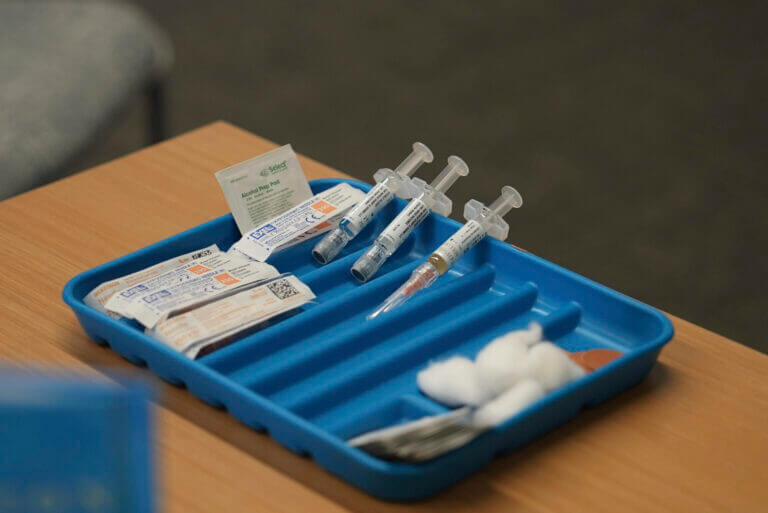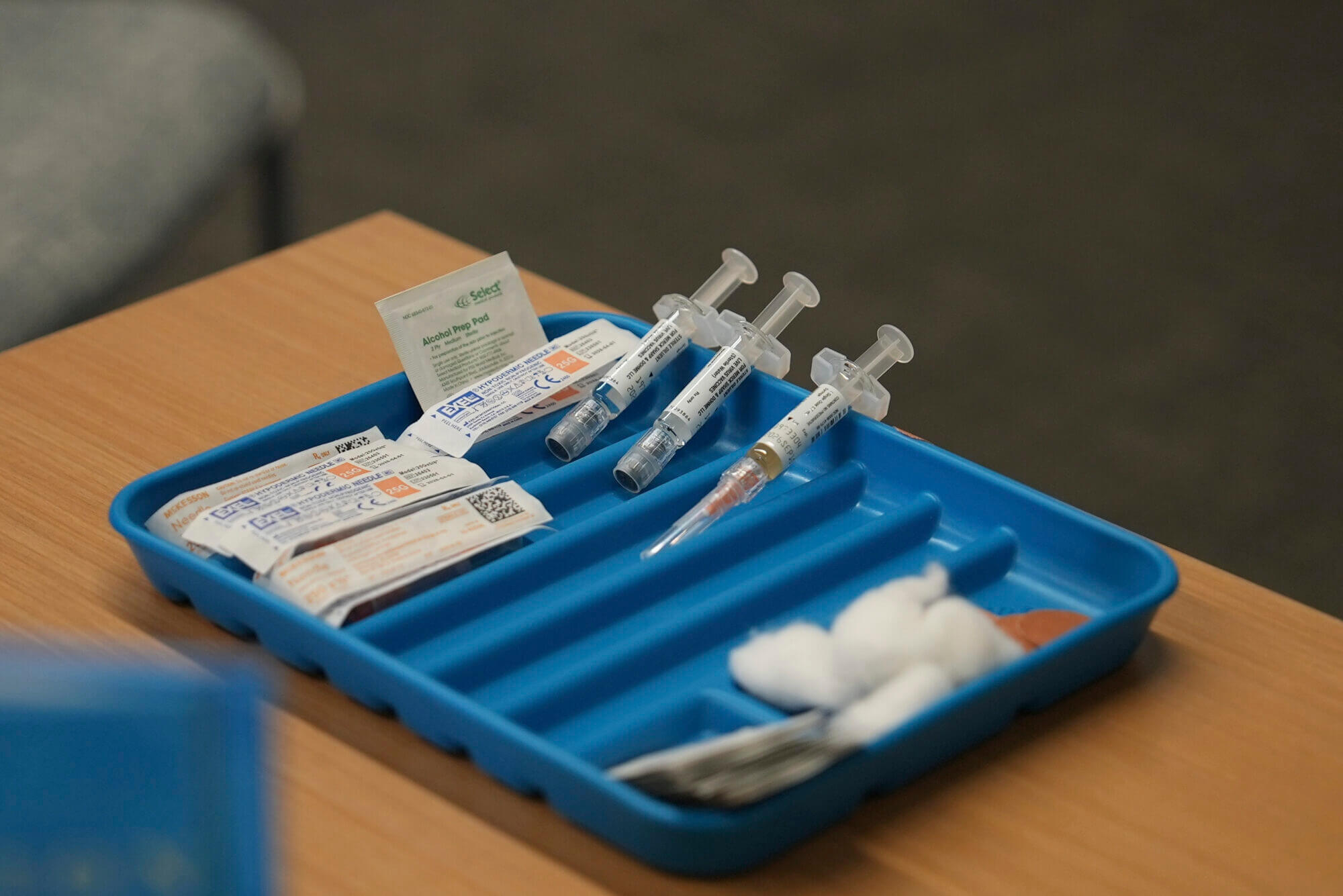

Mississippi’s kindergarten vaccination rates, once the highest in the nation, dipped last year as the number of approved religious vaccine exemptions rose.
The state’s childhood vaccination rates remain high, but public health officials are bracing themselves for possible outbreaks of measles and pertussis among young children as cases of vaccine-preventable diseases have risen across the nation.
There have been over 1,000 measles cases reported in the U.S. this year alone, compared to 285 cases last year. Three people have died from the virus, once deemed eradicated in the country, including two unvaccinated children in Texas.
“Our first line of defense is our immunization rates,” said State Health Officer Dr. Dan Edney at the State Board of Health Meeting April 10.
Kindergarten vaccination rates have fallen to fourth in the nation. Last school year, the state had 97.5% coverage for the measles, mumps and rubella vaccine, compared to 99.1% for the 2019-2020 school year, according to Centers for Disease Control and Prevention data. A vaccine coverage rate of 95% or higher is needed to prevent measles outbreaks.
There have not yet been any reported measles cases in Mississippi, though cases of pertussis, or whooping cough, have accelerated this year. State public health officials say the risk of widespread outbreaks among young children, who are most susceptible to both diseases and severe complications that can lead to death, is low due to high vaccination rates.
But relying solely on statewide vaccination rates can be deceiving, because it can camouflage clusters of unvaccinated people, said Jana Shaw, a professor of pediatrics at SUNY Upstate Medical University who studies childhood vaccinations and vaccine hesitancy.
“Transmission of (measles) happens at the community level,” she said. “So if you’re looking at a state level, you may be falsely reassured that the situation is better than what you expect.”
And vaccine exemptions are the single most important driver of disease outbreaks, said Shaw.
Parents have requested 5,845 religious vaccine exemptions since they became available in Mississippi two years ago. Over 800 were requested this year.
Mississippi long permitted only medical vaccine exemptions authorized by a doctor for school entry. That changed in 2023 when a federal judge ruled that parents can opt out of vaccinating their children due to religious beliefs.
The number of exemptions ranges by county, with the highest rates of vaccine exemptions among children in Lincoln, George and Stone counties, using 2023 Census data to calculate child population.
The lowest rates of religious vaccine exemptions are in Scott, Washington and Leflore counties.
A fourth of religious vaccine exemptions approved by the state did not list a county. This is because parents are sometimes unsure in which county a child will attend school or day care when they complete the form, said a spokesperson for the Mississippi State Department of Health.
Only 30% of the state’s approved religious exemptions are for children enrolled in a kindergarten through 12th grade public, private or church school when the exemption was approved. The remaining 70% are for children who were homeschooled, enrolled in day care or not yet enrolled in school.
To request a religious vaccine exemption in Mississippi, a parent or guardian must submit a form and make an appointment at their local county health department to watch a vaccine education video and discuss the benefits and risks of immunization with a nurse. Parents are also informed that if any vaccine-preventable disease occurs or threatens to occur in the community, the child will not be allowed to attend school or day care.
Religious vaccine exemptions are important because they protect parental autonomy, said Shaw. But they can become a problem when the laws are misused – for convenience or due to misinformation or disinformation.
Mississippi’s law, which requires parents to go to the county health department and talk to a nurse, helps create safeguards against this, said Shaw, whose research has shown that the easier it is for parents to get a child exempted for non-medical reasons, the higher a state’s exemption rate.
The health department has made changes to the process, including informing parents with approved religious exemptions that they can choose to vaccinate their children at any time. The agency has also advised providers to continue having conversations about vaccinations with parents who have religious exemptions on file.
- Patients face canceled surgeries and delayed care amid UMMC cyberattack - February 20, 2026
- Goal is ‘better alignment, not bigger government’ for Mississippi tourism - February 20, 2026
- Challenging work hours, transportation, and child care continue to be workforce barriers in the Delta - February 20, 2026